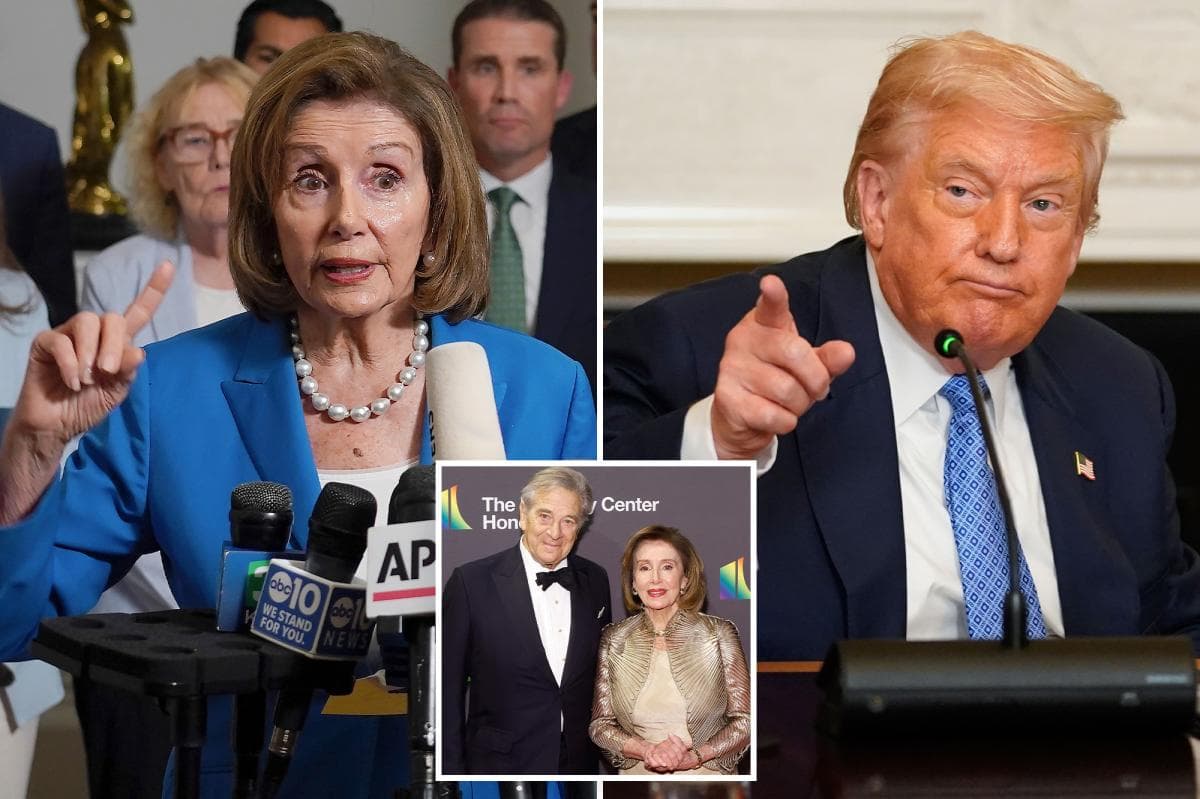Trump Accuses Pelosi of Insider Trading, Calls Her a "Disgusting Degenerate"
In a recent social media tirade, former President Donald Trump leveled sharp criticisms against Nancy Pelosi, the former Speaker of the House, accusing her of engaging in insider trading. Trump’s remarks have reignited discussions surrounding the ethical implications of stock trading by public officials and the potential for conflicts of interest.
Background & Context
Trump"s comments come as part of a broader narrative he has crafted around the financial dealings of political figures, particularly during his tenure in office. Pelosi, who served as Speaker from 2019 to 2021, has often been a target of Trump"s ire, especially following her role in his two impeachments. The term "insider trading" refers to the buying or selling of stocks based on non-public information, a practice that is illegal for public officials.
In his post, Trump claimed that Pelosi and her husband had outperformed Wall Street hedge funds, suggesting that they had access to privileged information that allowed them to make advantageous trades. This accusation raises significant questions about the transparency and accountability of public officials regarding their financial activities.
Key Developments
Trump"s post read: "Nancy Pelosi and her rather "interesting" husband outsmarted every hedge fund in 2024. In other words, these two rather average "minds" surpassed ALL the super-geniuses on Wall Street, thousands of them. This is all INSIDER INFORMATION! Is anyone looking into this???" He further labeled Pelosi a "disgusting degenerate" and criticized her for impeaching him without basis, stating, "How do you feel now, Nancy???"
While Trump’s accusations are not new, they have gained traction amid ongoing debates about the ethical implications of stock trading by lawmakers. Critics of Pelosi have long scrutinized her financial dealings, with some claiming that her stock trades coincide with legislative actions that could benefit her investments.
Broader Impact
The allegations made by Trump could have far-reaching implications for public trust in elected officials. Concerns over insider trading have prompted calls for stricter regulations governing the financial activities of lawmakers. This is particularly relevant as the public becomes increasingly aware of potential conflicts of interest, especially in light of recent developments in political finance and ethics.
Experts argue that these accusations could fuel bipartisan support for reforming how lawmakers handle their investments. As previously reported, there has been a growing movement advocating for greater transparency in the financial dealings of public officials, with proposals ranging from mandatory disclosures to outright bans on stock trading by members of Congress.
What"s Next
As the discourse surrounding insider trading continues, it remains to be seen whether Trump"s accusations will lead to any formal investigations into Pelosi"s financial activities. The political climate in Washington, D.C., is often charged, and such allegations could further polarize public opinion on both sides of the aisle.
In the meantime, as political figures grapple with the implications of financial transparency, the public will likely demand more accountability. With the 2024 elections approaching, candidates from both parties may need to address these issues head-on to restore trust among constituents. For those interested in related coverage, recent developments in U.S. political dynamics can be explored further.



![[Video] Gunfire between Iraqi security forces and Sadr militias in Baghdad](/_next/image?url=%2Fapi%2Fimage%2Fthumbnails%2Fthumbnail-1768343508874-4redb-thumbnail.jpg&w=3840&q=75)
